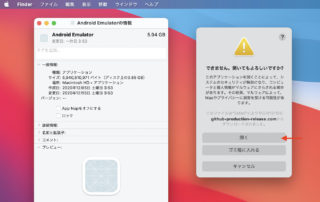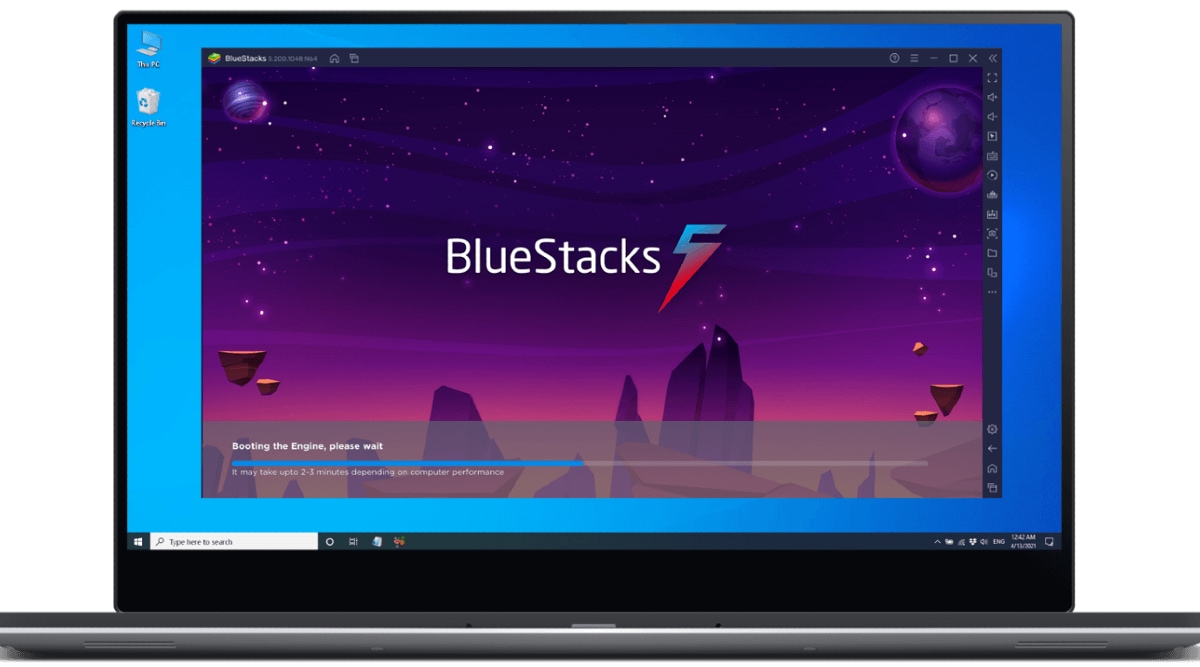

- #Android emulator doesn't start mac apk
- #Android emulator doesn't start mac trial
- #Android emulator doesn't start mac download
- #Android emulator doesn't start mac free
- #Android emulator doesn't start mac windows
(Don't open it after installation) Download Obb files and copy the *.obb file named '' into the required location:
#Android emulator doesn't start mac apk
Copy the APK file to your Android device's SD card and Install it.

You would need something much better than a SD800 to use this fix. Sounds will cut off and sound terrible if frames drop, and that includes EVERY sound. This option would be ideal, as it emulates every sound in the game faithfully.
#Android emulator doesn't start mac windows
It's just a folder I've setup in my Dropbox that contains amongst other things, my Windows desktop folder (I remapped it from it's usual %USERPROFILE%\Desktop location to this sync folder).įrom my situation and others, I am wondering though, if during installation or configuration, Xamarin is trying to determine the user folder path by getting the desktop folder path, and moving up one folder level? In my case, this would end up in the "sync" folder. I do not fully understand why it is even looking in the sync folder. This seems to be because it tries to retrieve them from the empty avd folder in c:\dropbox\sync.android\avd, rather than the %USERPROFILE%.android\avd folder. The AVD manager also contains no virtual devices. android folder, which contains an empty "avd" folder, a cache folder with some XML files, and a handful of. However, in a unrelated folder, c:\dropbox\sync I also have a. In my %USERPROFILE%.android\avd folder is listed MonoForAndroid API7-15.avd folders and ini files. I have the same problem: No available images in the Start Emulator popup in VS 2012.

I tried copying the stuff from my user profile to the SDK directory (that Xamarin uses in Tools|Options) but even so it fails to run the application. Then I can't use Xamaring IDE to download app.įor that reason it doesn't work, they don't cooperate with each other.

My environment variables are OK (System Environment Variables), they point to the ADT.Now, when I tried to start the Tasky solution (the simplest that supposedly works with the trial) I got the same PANIC could not start blah blah blah.Īfter reading this and investigating I found the following:
#Android emulator doesn't start mac trial
I am trying out various development environments so part of it came from the Android ADT bundle installed in H:\My AppInstall\blah\ and then when I installed Xamarin trial I used its SDK Manager to install missing components such as API Level 10, etc. You should either launch the AVD from the IDE or from the command line emulator -partition-size 512 -avd NameOfYourEmulator
#Android emulator doesn't start mac free
Starting from the AVD manager is not a good idea, as that tends to create emulator instances with very little free space on the /data partition. Start the AVD manager and start it from there. Wait for it to finish booting (a few minutes?), then return to the Select Device dialog, click the Refresh link, select your running device, then click OK.Īter you Create an emulator, you need to return to the Start Emulator dialog, select an AVD name, and click the OK button. Once you've clicked OK in the Start Emulator dialog, the emulator should launch. If the Start Emulator dialog doesn't show anything, you'll need to click the Create new emulator image link, which will open the AVD Manager you can then create a new AVD name, return to the Start Emulator dialog, and click the Refresh images link. When an entry appears under the Available images section, select a name and click OK. When the Start Emulator dialog first appears and is empty, either wait a bit or click the Refresh images link (and then wait some more - a few seconds). Please see the Launching the emulator documentation. Then in the list of "running devices", I still see nothing.Ĭreating an emulator is not the same as launching the emulator. From there I don't have anything listed, so I go on with "Create a new emulator image" and create a standard emulator.


 0 kommentar(er)
0 kommentar(er)
